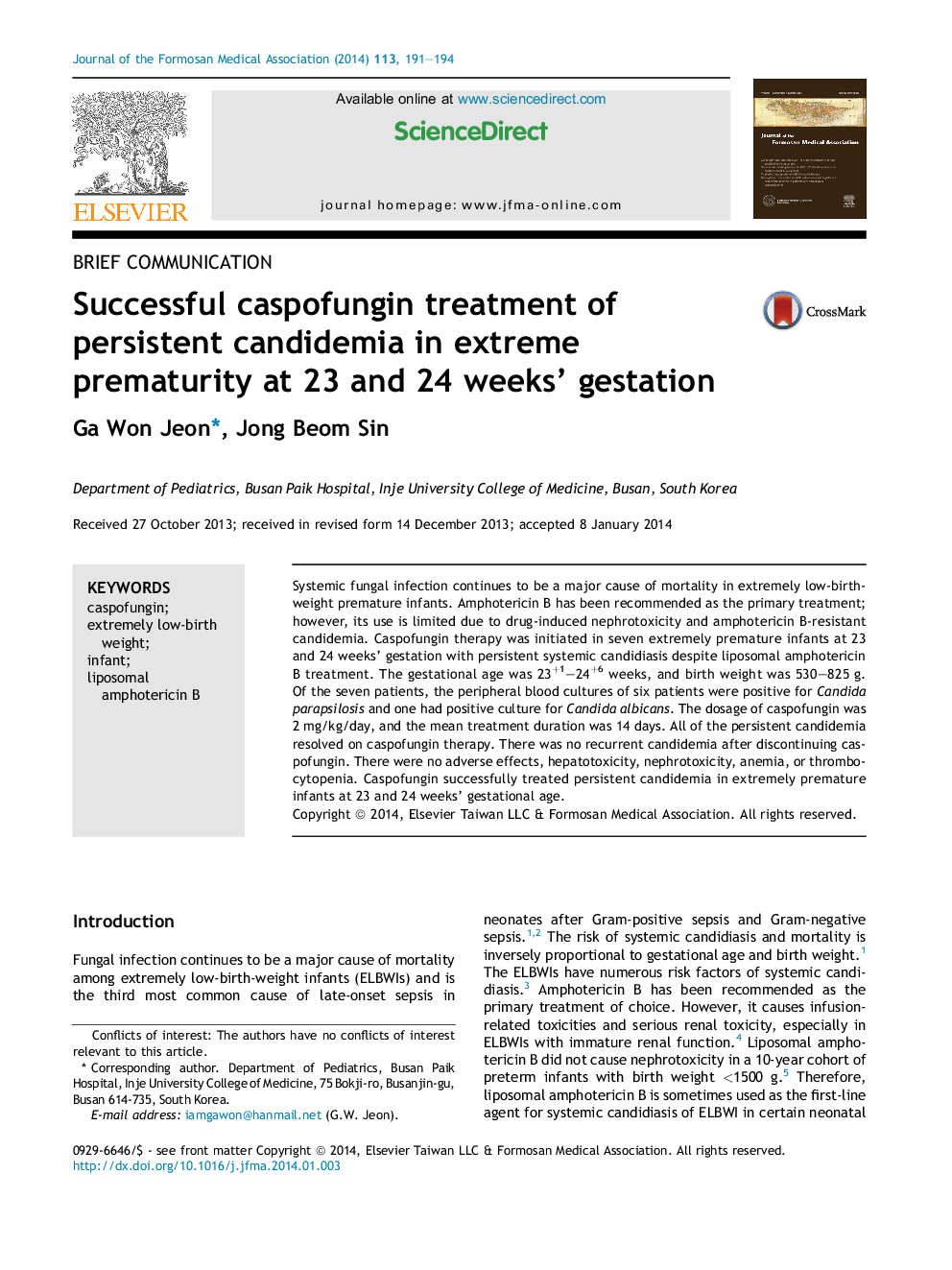| Article ID | Journal | Published Year | Pages | File Type |
|---|---|---|---|---|
| 3478979 | Journal of the Formosan Medical Association | 2014 | 4 Pages |
Systemic fungal infection continues to be a major cause of mortality in extremely low-birth-weight premature infants. Amphotericin B has been recommended as the primary treatment; however, its use is limited due to drug-induced nephrotoxicity and amphotericin B-resistant candidemia. Caspofungin therapy was initiated in seven extremely premature infants at 23 and 24 weeks' gestation with persistent systemic candidiasis despite liposomal amphotericin B treatment. The gestational age was 23+1–24+6 weeks, and birth weight was 530–825 g. Of the seven patients, the peripheral blood cultures of six patients were positive for Candida parapsilosis and one had positive culture for Candida albicans. The dosage of caspofungin was 2 mg/kg/day, and the mean treatment duration was 14 days. All of the persistent candidemia resolved on caspofungin therapy. There was no recurrent candidemia after discontinuing caspofungin. There were no adverse effects, hepatotoxicity, nephrotoxicity, anemia, or thrombocytopenia. Caspofungin successfully treated persistent candidemia in extremely premature infants at 23 and 24 weeks' gestational age.
